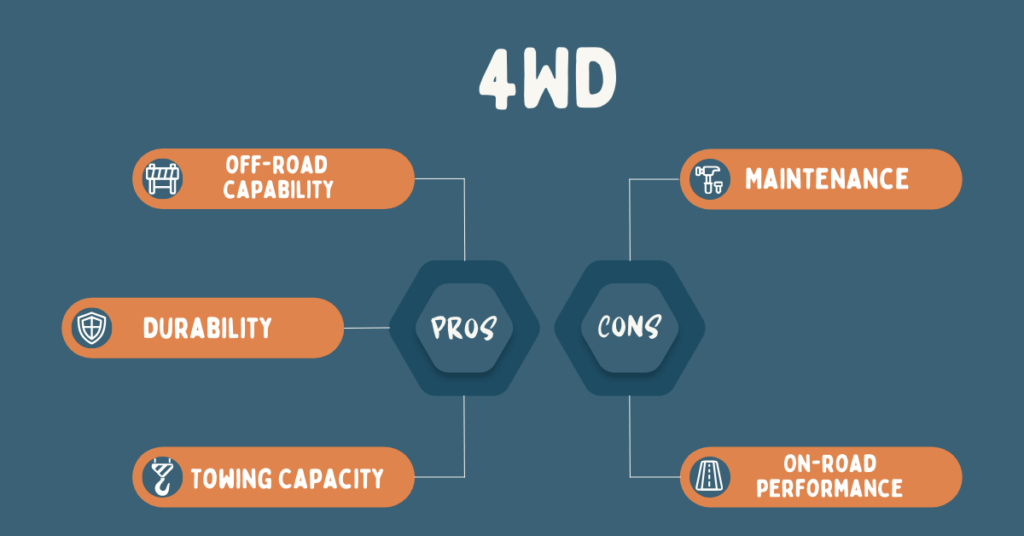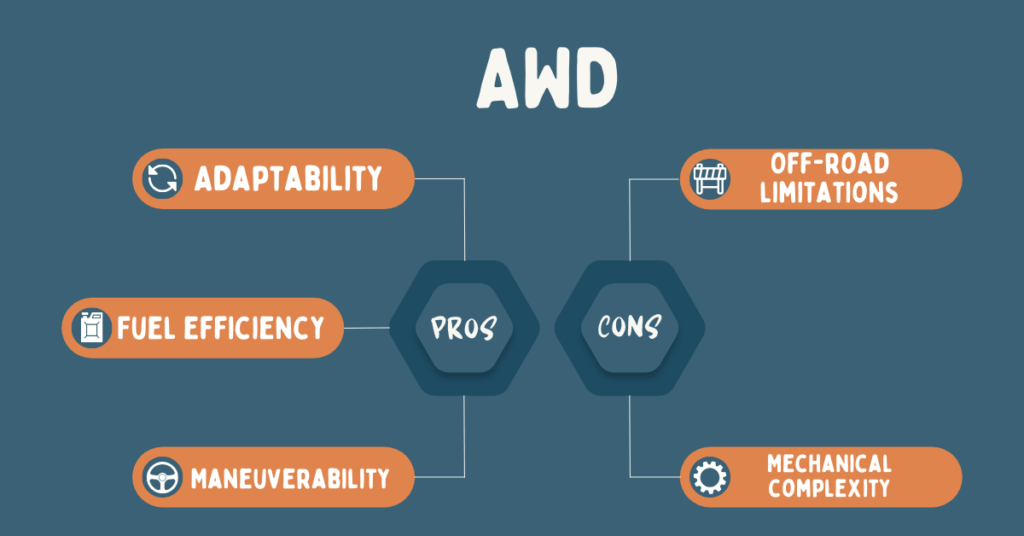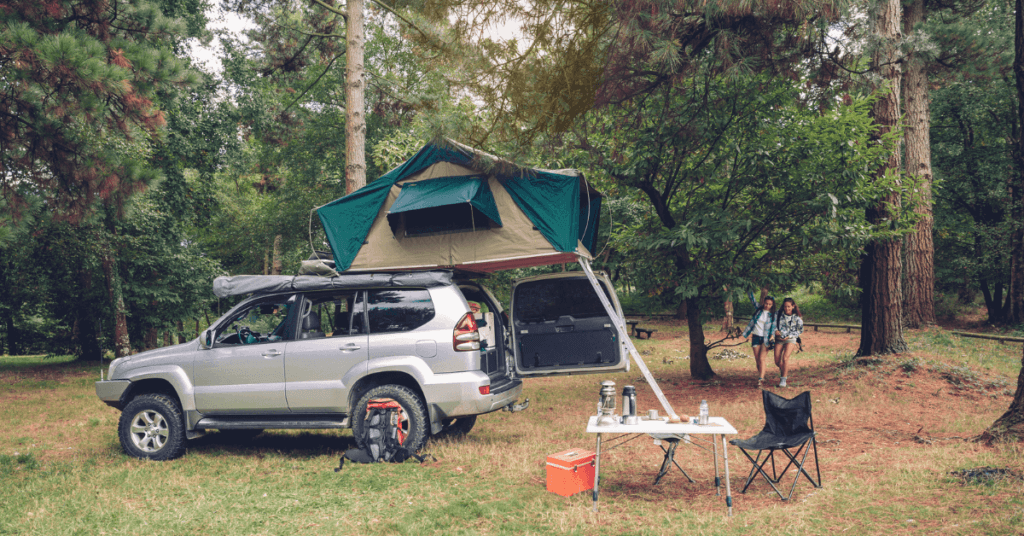The Battle of the Drivetrain: AWD vs 4WD! Which one is better for your overland needs? If you love to seek your adventures beyond the borders of the paved road, choosing the right drivetrain for your overland camper is crucial. You want to be out there exploring the world, not stuck with mud up to your knees, digging out your vehicle.
Keep reading to discover the difference between Four-Wheel Drive and All-Wheel Drive, and which one best suits your travels.
Four-Wheel Drive
When a vehicle has four-wheel drive, the drivetrain directly powers all four tires. Compared to most standard cars, which are either front-wheel drive (FWD) or rear-wheel drive (RWD), ⏤ meaning that they only power the two front or rear wheels⏤ , the four-wheel drive provides more traction, making it better for off-road driving.
Most 4WD vehicles will have the option to switch between RWD and 4WD.

Pros
Superior off-road capability
Whether driving on rocky terrain, sandy dunes, or steep inclines, 4WD offers maximum traction and torque, enabling you to navigate rugged terrain confidently.
Enhanced Durability
4WD vehicles have a robust construction, making them more suited for campers who want to venture into remote areas. Their design enables them to withstand the rigors caused by driving on rough terrain.
Higher Towing Capacity
The higher towing capabilities of 4WD vehicles compared to most 2WD vehicles can be handy, especially if you want to use your camper to pull trailers or caravans through challenging landscapes.
Cons
Maintenance
4WD vehicles typically require more maintenance and occasional repairs, especially when they are frequently pushed to their limit while offroad driving.
On-road performance
When the 4WD is activated, all four tires get the same power, making them harder to control in turns due to the absence of a center differential. With its reduced handling dynamics and higher fuel consumption, a 4WD vehicle might be less suited for campers who mainly travel on regular, paved roads.
All-Wheel Drive
All-wheel drive systems are designed to automatically provide power to the front and rear axle of a
vehicle. A more modern model will even continuously adjust the power delivered to each wheel, ensuring the car won’t lose its grip. For example, they will stabilize the vehicle by providing power to the back wheels when it turns.

Pros
Adaptability
Unlike 4WD systems requiring manual drive adjustment, an AWD vehicle automatically shifts power to the four wheels. This provides continuous stability and control, resulting in a smoother driving experience.
Fuel efficiency
The optimized power distribution of AWD vehicles often makes them more fuel efficient than 4WD vehicles since they don’t continuously power all four wheels but only do so when needed.
Maneuverability
Since AWD vehicles can direct their power to each wheel separately, they excel in agility and responsiveness, particularly when driving on roads that require frequent acceleration, deceleration, and turns.
Cons
Off-road limitations
While AWD vehicles can handle some light off-road driving, they were not intended for extreme off-roading, like driving in deep mud or rock crawling, since they don’t provide the same level of traction and torque as a 4WD.
Mechanical complexity
The mechanics of AWD systems tend to be more complex than traditional 4WD setups since they are equipped with additional components such as a slipper plate clutch or a center differential. The more parts a vehicle has, the more mechanical maintenance it will need.
Exception
Some vehicles are both 4WD and AWD, like the Lada Niva or the Land Rover Defender. They provide continuous power to all four wheels, making them all-wheel drive, but they also have high and low gear ratios and the ability to lock the center differential. In doing so, the power will be equally divided between the front and rear axles. Therefore, these vehicles are also considered to be four-wheel drive.
Choosing the Ideal Drivetrain for Your Camping Adventures
When choosing between AWD and 4WD for your camper, consider the nature of your adventures, terrain requirements, and personal preferences:
- If you prioritize a smooth driving experience with lots of versatility and only occasionally want to do some light off-roading or enjoy the ease of mind of the extra traction, an AWD vehicle is the way to go for your needs.
- Alternatively, if you’re an avid off-roader looking for maximum traction, durability, and towing capacity, a 4WD camper is perfect for your unpaved adventures.
- If you are somewhat mechanically savvy, you could choose to go for the exception, a vehicle that offers the best of both worlds, like we did when choosing our ’88 Land Rover 110.
The choice is yours, and we hope that with this information, you can choose the perfect drivetrain for your overland camper!
Still confused about the difference between AWD and 4WD? Click here to watch a video explaining it further.
Hope to see you on the road,
Planet Doe
![]()
want to learn what type of off-road tires you’ll need for your adventures? Go check out The ultimate guide to offroad tires.







